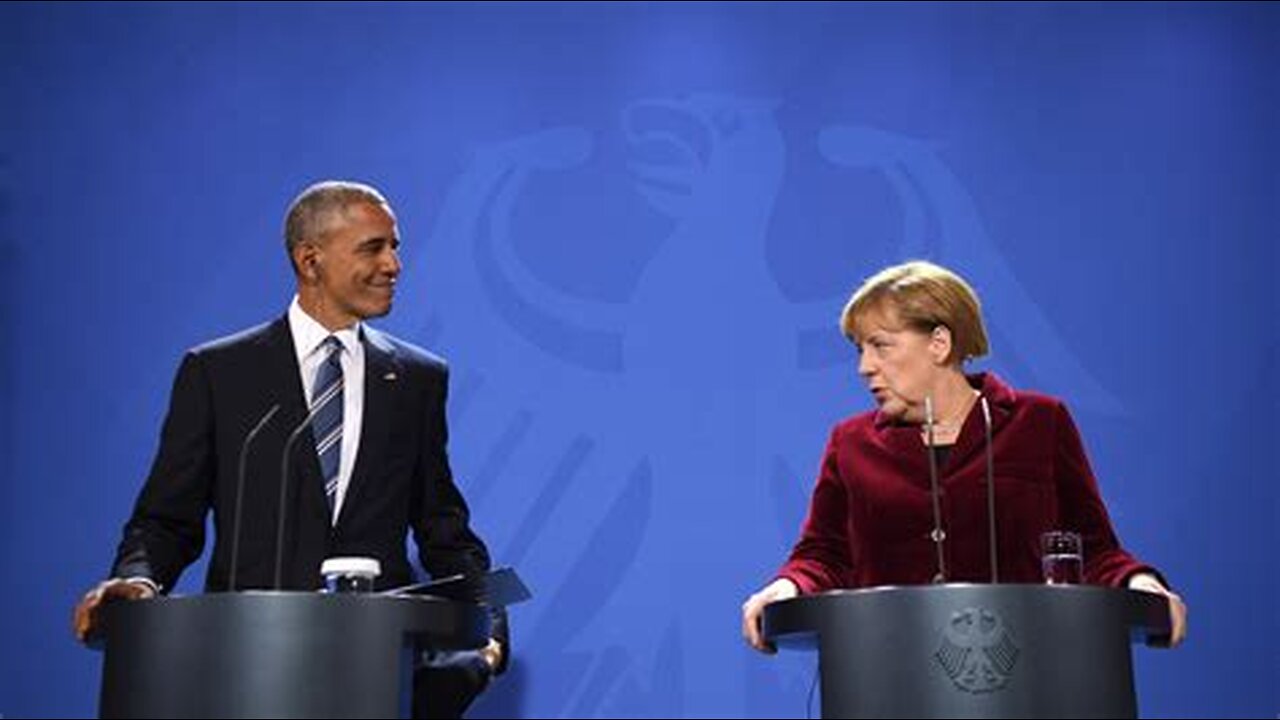Premium Only Content

SANKT AUGUSTIN POLIZEI EUROPEAN COMMISSION ATTEMPTED MURDER POISON
... a method of operation by the Ministry for State Security for an efficacious struggle against subversive activities, particularly in the treatment of operations. With Zersetzung one can influence hostile and negative individuals across different operational political activities, especially the hostile and negative aspects of their dispositions and beliefs, so these are abandoned and changed little by little, and, if applicable, the contradictions and differences between the hostile and negative forces would be laid open, exploited, and reinforced.
The goal of Zersetzung is the fragmentation, paralysis, disorganization, and isolation of the hostile and negative forces, in order to preventatively impede the hostile and negative activities, to largely restrict, or to totally avert them, and if applicable to prepare the ground for a political and ideological reestablishment.
Zersetzung is equally an immediate constitutive element of "operational procedures" and other preventive activities to impede hostile gatherings. The principal force employed to implement Zersetzung are the unofficial collaborators. Zersetzung presupposes information and significant proof of hostile activities planned, prepared, and accomplished as well as anchor points corresponding to measures of Zersetzung.
Zersetzung must be produced on the basis of a root cause analysis of the facts and the exact definition of a concrete goal. Zersetzung must be executed in a uniform and supervised manner; its results must be documented.
The political explosive force of Zersetzung heightens demands regarding the maintenance of secrecy.
Scapegoating is the practice of singling out a person or group for unmerited blame and consequent negative treatment. Scapegoating may be conducted by individuals against individuals (e.g. "he did it, not me!"), individuals against groups (e.g., "I couldn't see anything because of all the tall people"), groups against individuals (e.g., "He was the reason our team didn't win"), and groups against groups.
A diversionary foreign policy, or a diversionary war, is an international relations term that identifies a war instigated by a country's leader in order to distract its population from their own domestic strife. The concept stems from the Diversionary War Theory, which states that leaders who are threatened by domestic turmoil may initiate an international conflict in order to improve their standing. There are two primary mechanisms behind diversionary war: a manipulation of the Rally Round the Flag effect, causing an increase of national fervor from the general public,[1] and "gambling on resurrection", whereby a leader in a perilous domestic situation takes high-risk foreign policy decisions with small chance of success but with a high reward if successful.[2]
Scholars of International Relations have dedicated much research to the practical application of diversionary war. A large percentage investigates Presidents of the United States and their disputed culpability partaking in diversionary foreign policy. Despite the immense amount of effort and research, scholars have not yet formed a consensus of the accuracy of the theory, and empirical evidence is mixed at best.
-
 LIVE
LIVE
I_Came_With_Fire_Podcast
6 hours agoDEPARTMENT OF EDUCATION AXED | GAZA ULTIMATUM
104 watching -
 LIVE
LIVE
FreshandFit
2 hours agoCall-In Show
2,862 watching -
 4:27:46
4:27:46
Nerdrotic
7 hours ago $31.93 earnedDaredevil Born Again REVIEW, Harry Potter Show DOA, DC HACKED! | Friday Night Tights 344 Paul Chato
95.5K29 -
 1:15:15
1:15:15
Glenn Greenwald
3 hours agoWeek in Review: Lee Fang and Leighton Woodhouse on Ukraine War and NYT Piece Revealing Tensions within Trump Admin; PLUS: Lee Fang Takes Audience Questions on DOGE and Big Tech | SYSTEM UPDATE #420
41K35 -
 1:03:30
1:03:30
Sarah Westall
6 hours agoMassive Government Overhaul: FBI, CIA, IRS and more to be Gutted w/ Sam Anthony
53.3K13 -
 1:07:40
1:07:40
IsaacButterfield
6 hours ago $1.35 earnedAustralia Under Attack | Trump's State of the Union | All LGBTQ Cast (W Guest Frenchy)
17.6K -
 1:23:37
1:23:37
Edge of Wonder
6 hours agoIs Your Car Collecting Your Biodata? Whistleblower Exposes Dark Agenda
21.5K2 -
 2:08:50
2:08:50
Quite Frankly
8 hours ago"News Round-Up, Celebrity Stories, Friday Extras" ft. J Gulinello 3/7/25
27.9K5 -
 55:49
55:49
LFA TV
1 day agoGermany Started Two World Wars and Now Wants Nuclear Weapons | TRUMPET DAILY 3.7.25 7PM
26.8K24 -
 1:34:38
1:34:38
2 MIKES LIVE
4 hours ago2 MIKES LIVE #189 Open Mike Friday (Sort Of)
20.6K